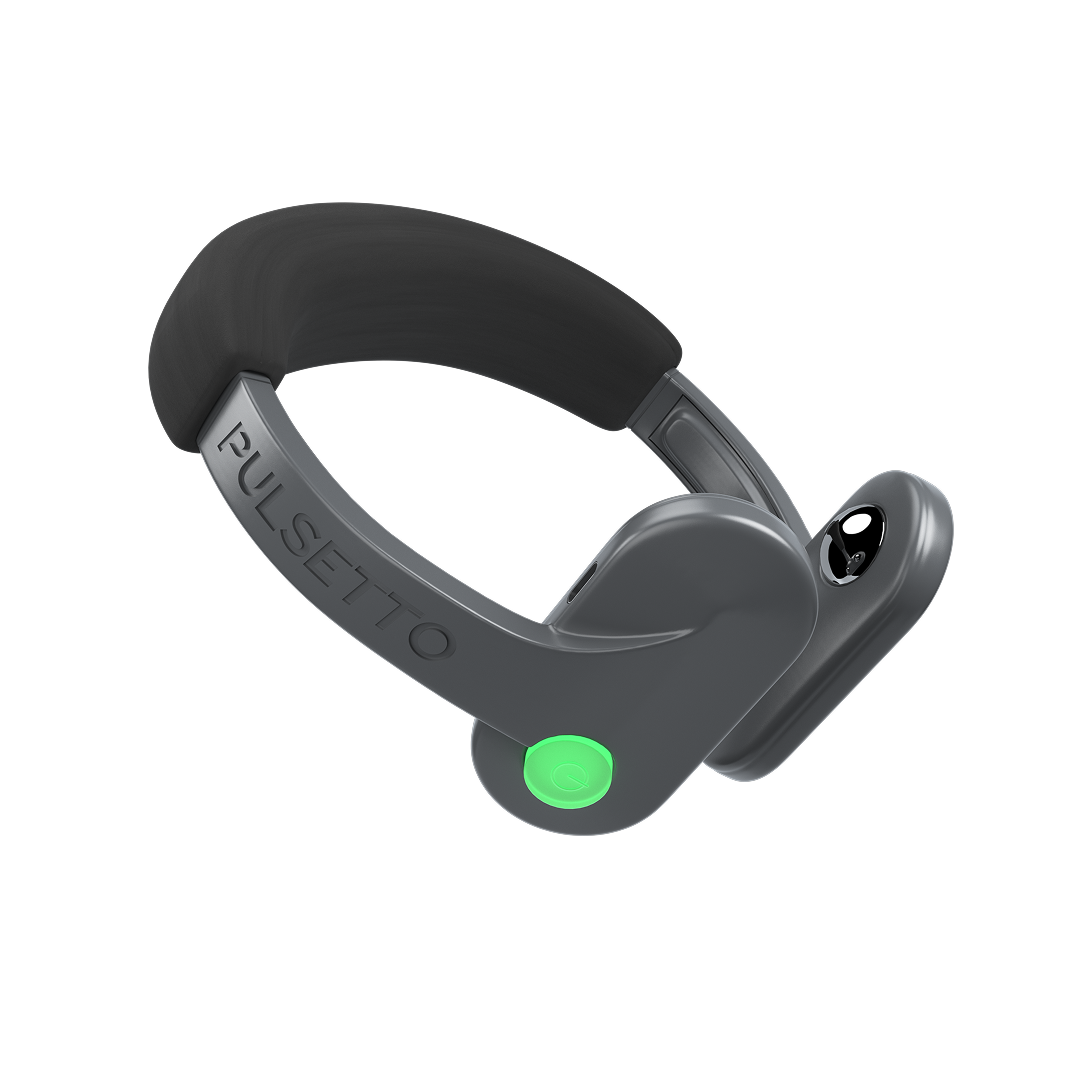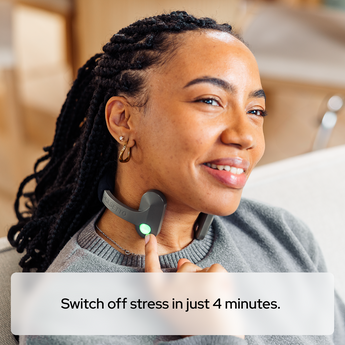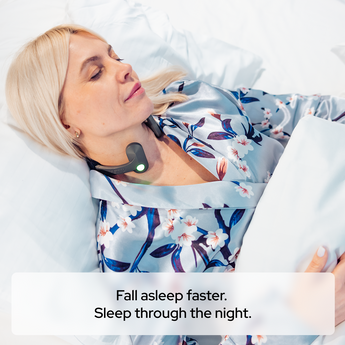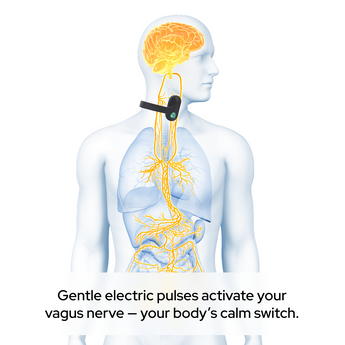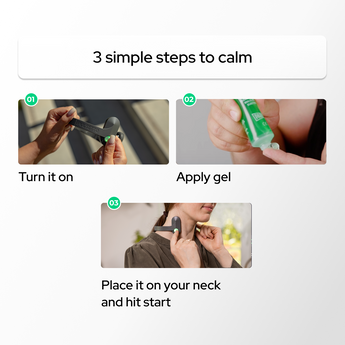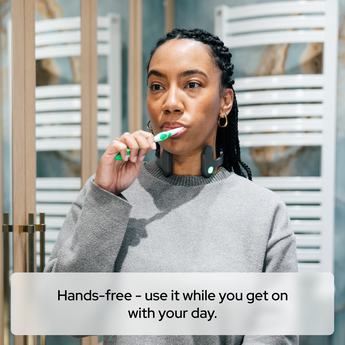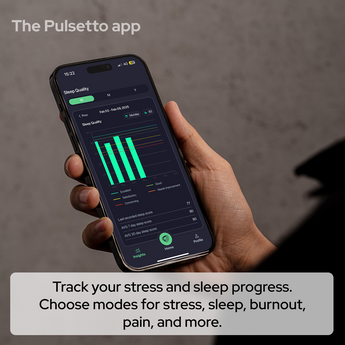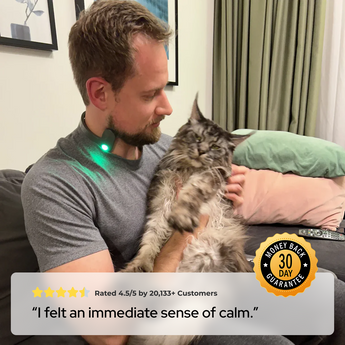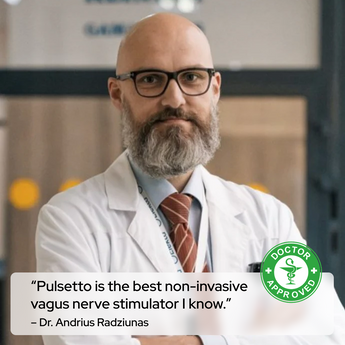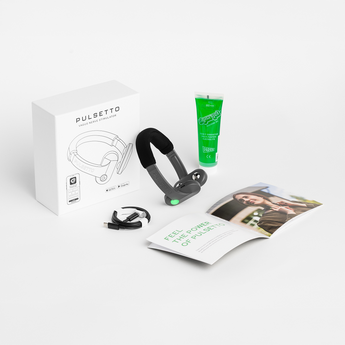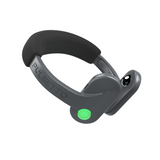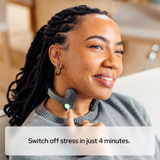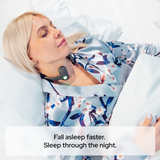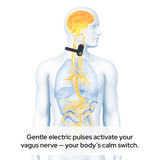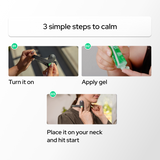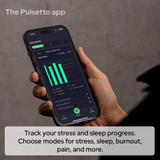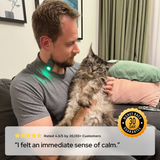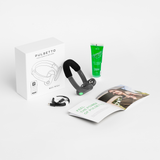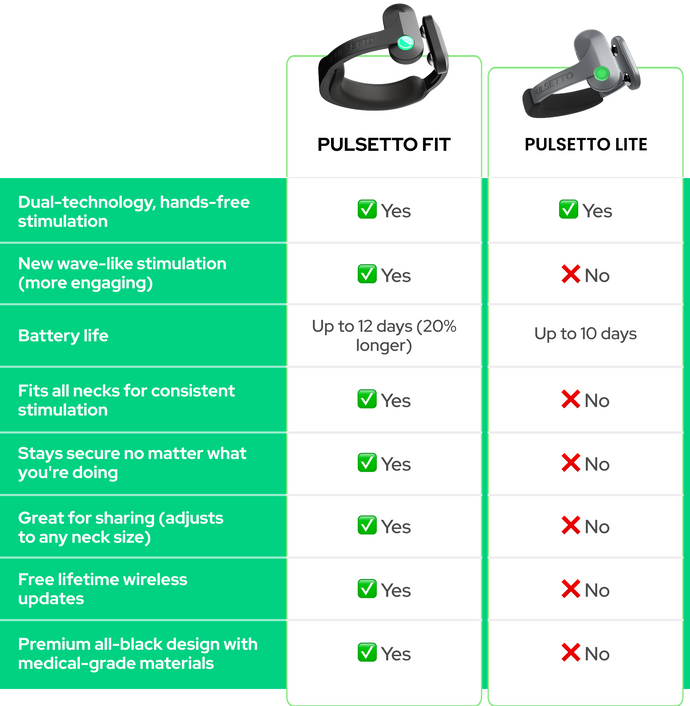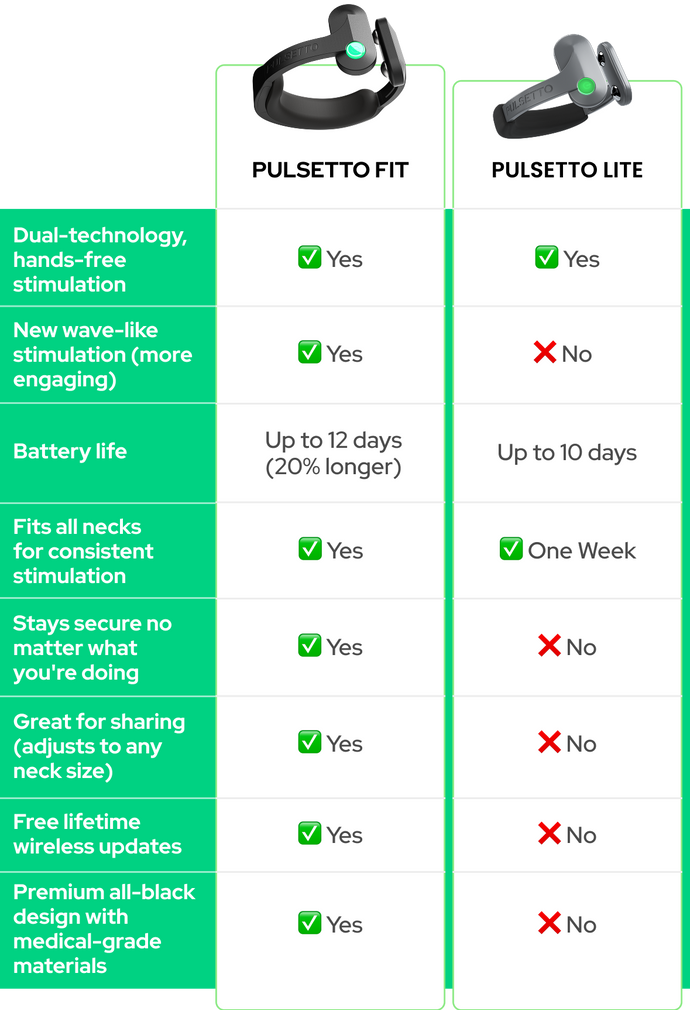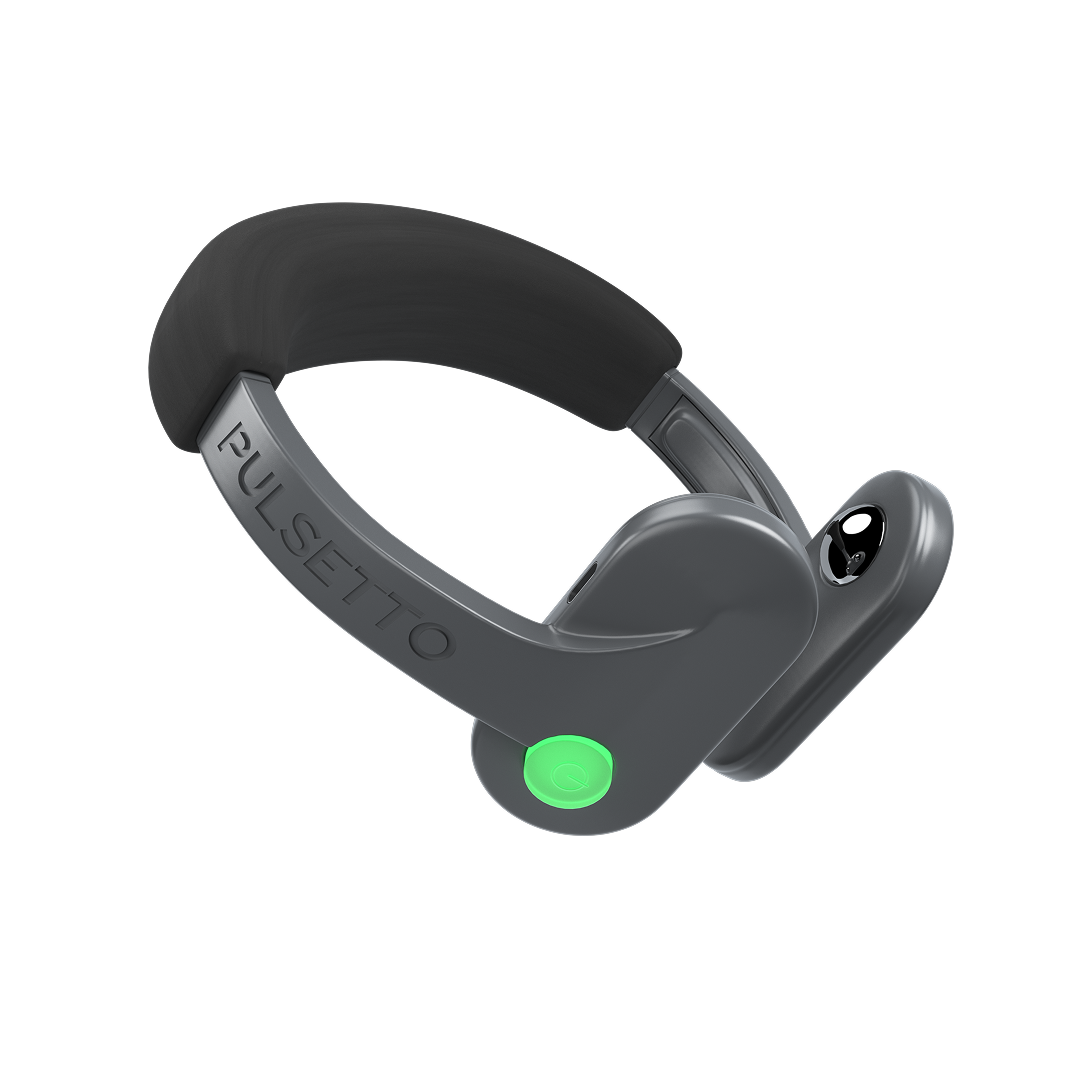Benefits of VNS in Addiction Treatment
Reduction in Anxiety
The connection between the vagus nerve and addiction is becoming increasingly clear, thanks to ongoing research and clinical studies. One of the most significant benefits of VNS in addiction treatment is its ability to reduce anxiety. Many individuals turn to substances as a way to cope with stress and anxiety - and by calming your body's stress response, VNS can help you break this cycle.
It will also make it easier for you to cope with the emotional challenges of quitting and staying sober - this relaxation effect can reduce the urge to turn to substances for relief.
Reduction in Drug-Seeking Behaviors
Besides that, VNS has been shown to reduce drug-seeking behaviors. A research team from The University of Texas at Dallas has shown in a preclinical study that vagus nerve stimulation could help retrain the brain at the cellular level to reduce drug-seeking behavior through a specific neuromodulator.
The researchers found that VNS therapy changed how brain cells in the prefrontal cortex and amygdala connected in cocaine-addicted rats. This helped the rats unlearn their drug-seeking behavior by reducing their cravings and teaching them new reward behaviors instead of pressing a lever for cocaine. The researchers believe that their findings could eventually be used to help individuals struggling with drug addiction or substance abuse disorders.
HRV Exercises for Addiction
Understanding Heart Rate Variability
Heart Rate Variability (HRV) refers to the variation in time between each heartbeat. This variation is controlled by the autonomic nervous system, which includes the sympathetic and parasympathetic branches. The sympathetic branch is responsible for the "fight or flight" response, while the parasympathetic branch promotes relaxation and recovery.
Higher HRV is generally associated with better cardiovascular health and a greater ability to handle stress. On the other hand, lower HRV can indicate a higher level of stress and a reduced ability to cope with challenges.
HRV and Addiction
When it comes to addiction, HRV is particularly important. A study published in the Journal of the American Psychiatric Nurses Association showed that substance users were found to have significantly lower resting HRV compared to healthy individuals, which is linked to higher stress, cravings, and more severe symptoms in those with substance use disorders. Monitoring HRV could help detect early signs of relapse, allowing for timely prevention measures.
By improving HRV, you can help your body better handle stress - and make it easier for you to stay on the path to recovery.
HRV Exercises
Regular HRV exercises can significantly reduce stress and anxiety levels - and this is incredibly beneficial if you’re in recovery, as it helps you reduce the triggers that can lead to substance use.
Here are some practical HRV exercises you can incorporate into your daily routine:
-
Deep Breathing: Take slow, deep breaths in through your nose and out through your mouth. Aim for a 4-4-4-4 pattern: inhale for 4 seconds, hold for 4 seconds, exhale for 4 seconds, and hold for 4 seconds.
-
Meditation: Spend 10-15 minutes each day practicing mindfulness meditation. Focus on your breath and let go of any distracting thoughts.
-
Progressive Muscle Relaxation: Tense and then relax each muscle group in your body, starting from your toes and working your way up to your head.
-
Yoga: Incorporate gentle yoga poses into your routine to promote relaxation and improve HRV.

Meditation and relaxation exercises can help you increase your HRV and reduce anxiety.
Non-Invasive Vagus Nerve Stimulation Devices
How VNS Devices Work
Besides HRV exercises, non-invasive vagus nerve stimulation devices like Pulsetto offer another effective way to manage anxiety. They work by sending mild electrical pulses to the vagus nerve through your skin to help to reduce stress and improve your mood.

Vagus nerve stimulation can reduce anxiety and stress during addiction treatment.
Benefits
Vagus nerve stimulators have the following benefits:
- Convenient and easy to use
- No need for surgical implantation
- Can be used alongside other treatments, such as HRV exercises
-
Can provide both immediate and long-term relief from stress and anxiety
- Improve sleep
Limitations
However, it's important to note that non-invasive VNS devices may not be suitable for everyone. Some individuals may experience mild side effects, such as skin irritation or a tingling sensation - so it's always best to consult with a healthcare professional before starting any new treatment.
Comparing Non-Invasive Methods and HRV Exercises
HRV exercises are a natural and accessible way to improve heart rate variability and reduce stress. They can be easily incorporated into your daily routine and require no special equipment.
On the other hand, non-invasive VNS devices offer a more convenient and effective way to stimulate the vagus nerve and regulate the nervous system. These devices can provide immediate relief from stress and anxiety - however, they may be expensive.
Pulsetto Vagus Nerve Stimulation
Our vagus nerve stimulator is a small, portable device that targets the vagus nerve through electrical pulses delivered via an electrode placed on the skin - you just need to put it on your neck and turn it on.

Pulsetto vagus nerve stimulator
Pulsetto offers several advantages over other VNS devices:
- Easy to use with a simple smartphone app
- Comfortable and discreet design
- Proven effectiveness in reducing stress and anxiety
- Requires just 4 minutes of use per day
If you're looking for a non-invasive way to reduce stress during addiction treatment and improve your overall well-being, it’s an excellent choice. With its user-friendly design and proven effectiveness, it will help you stay on the path to recovery and achieve long-term success.
Experience the calming effect of Pulsetto today!
Frequently Asked Questions (FAQ)
How does vagus nerve stimulation work?
Vagus nerve stimulation works by sending mild electrical pulses to the vagus nerve, which helps regulate the body's stress response and improve mood.
Are HRV exercises safe for everyone?
Generally, HRV exercises are safe for most people. However, it's always a good idea to consult with a healthcare professional before starting any new exercise routine, especially if you have a pre-existing medical condition. HRV exercises like deep breathing, meditation, and yoga are typically low-risk.
What are the benefits of VNS during addiction treatment?
VNS can provide immediate relief from stress and anxiety, which are common triggers for substance use. It can also reduce drug cravings and drug-seeking behaviors, making it easier to stay on the path to recovery.
How long does it take to see results from VNS?
The time it takes to see results from vagus nerve stimulation will vary depending on the individual and the severity of their condition. Some people may experience immediate relief from stress and anxiety, while others may need several weeks or months of consistent use to see significant improvements.
Are there any side effects of VNS?
While vagus nerve stimulation is generally safe, some individuals may experience mild side effects. These can include skin irritation, a tingling sensation at the site of stimulation, or mild discomfort. These side effects are usually temporary and can often be managed by adjusting the device settings or using the device for shorter periods.
Can HRV exercises be combined with VNS?
Absolutely! Combining HRV exercises with vagus nerve stimulation can enhance the overall benefits and support long-term recovery.



